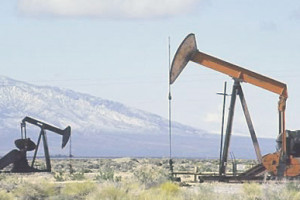Strengthening of ruble due to growth of oil prices over – Yudayeva

MOSCOW. April 22 (Interfax) – The strengthening of the ruble due to growth in prices for oil has ended, First Deputy Central Bank Governor Ksenia Yudayeva told journalists at the Forum for Financial Stability on Wednesday.
“The strengthening of the ruble has ended, it has partially ended, what we saw was connected with the sharp movement upwards in prices for oil – by 30%, it has ended. Now the stabilization has begun,” Yudayeva said, answering a question from journalists about the risks for financial stability due to the strengthening of the ruble.
She said that risks may always emerge both with a weakening and with a strengthening of the exchange rate of the national currency.
“In principle, now the level of risks for financial stability are substantially lower that they were a few months ago,” Yudayeva said.
“I don’t think that this volatility, which we are seeing, is now dangerous, that it presents a very serious danger for markets,” the first deputy governor said.
She said that market is already accustomed to volatility. “Our banking sector, in connection with the control over forex positions, is sufficiently protected from forex risks,” Yudayeva said.
She said that not only prices for oil but also European antimonopoly requirements for Gazprom (MOEX: GAZP) may have affected the volatility of the rubles recently.
The European Commission has sent Gazprom (MOEX: GAZP) a statement of objections alleging breach of EU antitrust rules.
“On the basis of its investigation, the Commission’s preliminary view is that Gazprom is breaking EU antitrust rules by pursuing an overall strategy to partition Central and Eastern European gas markets, for example by reducing its customers’ ability to resell the gas cross-border. This may have enabled Gazprom to charge unfair prices in certain Member States. Gazprom may also have abused its dominant market position by making the supply of gas dependent on obtaining unrelated commitments from wholesalers concerning gas transport infrastructure,” it said.
